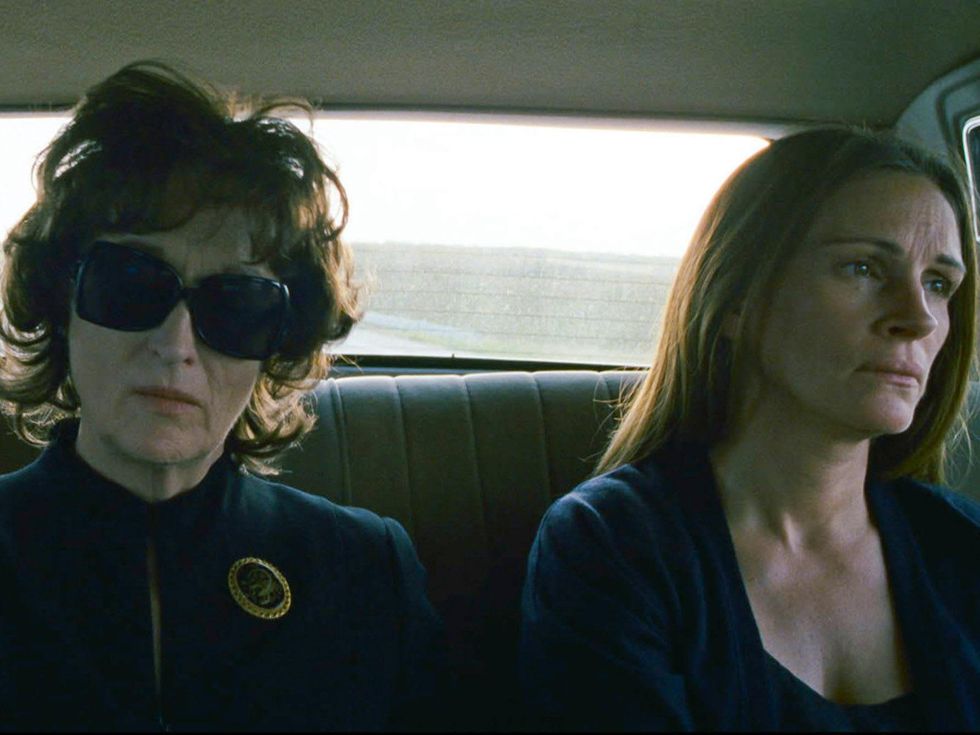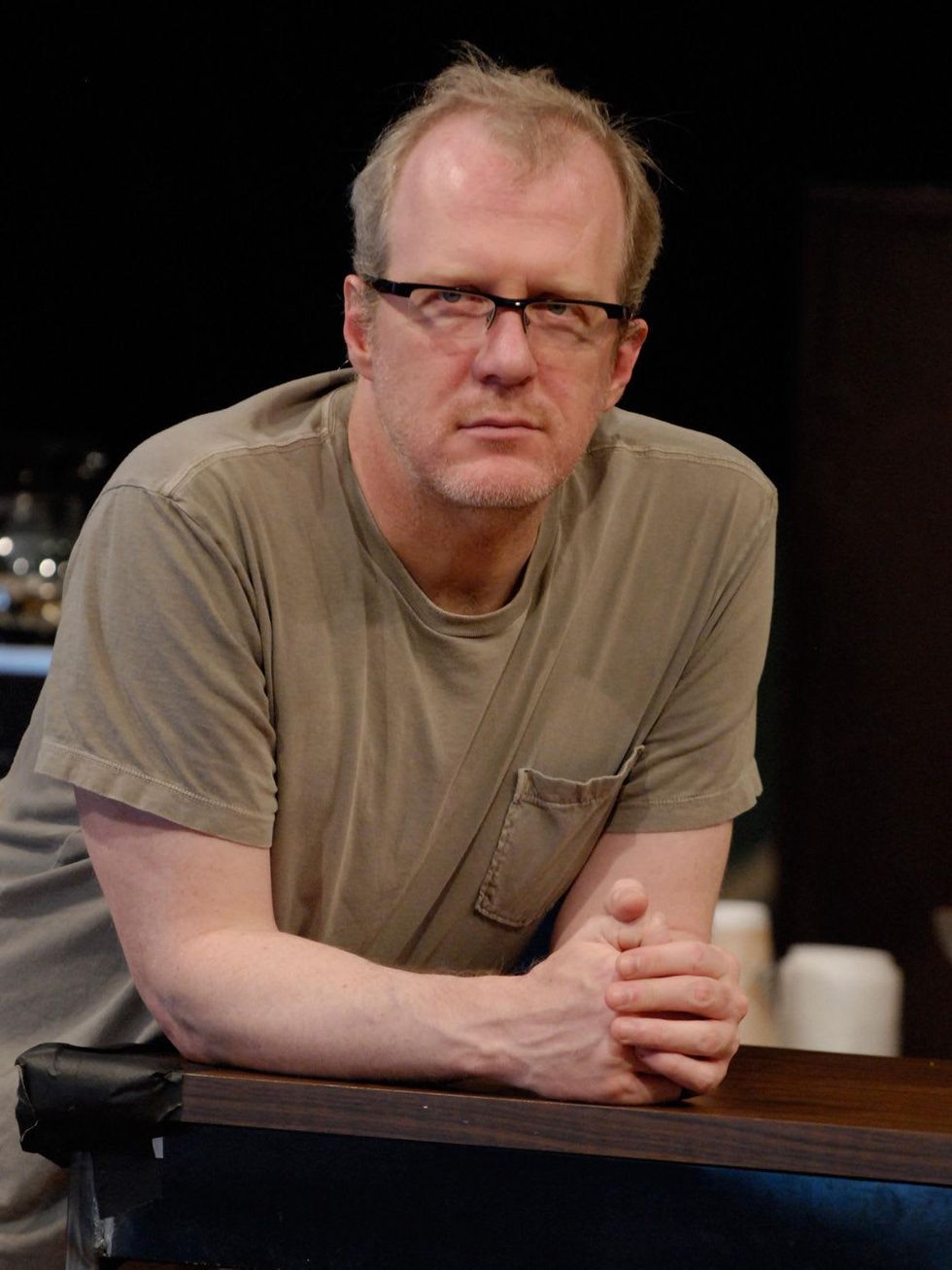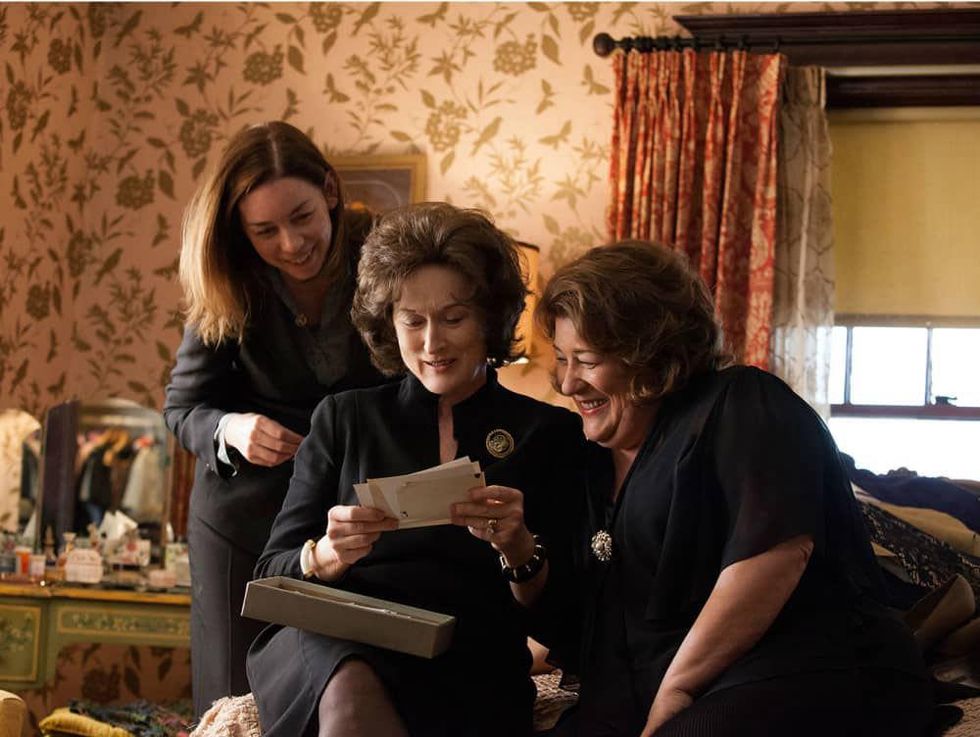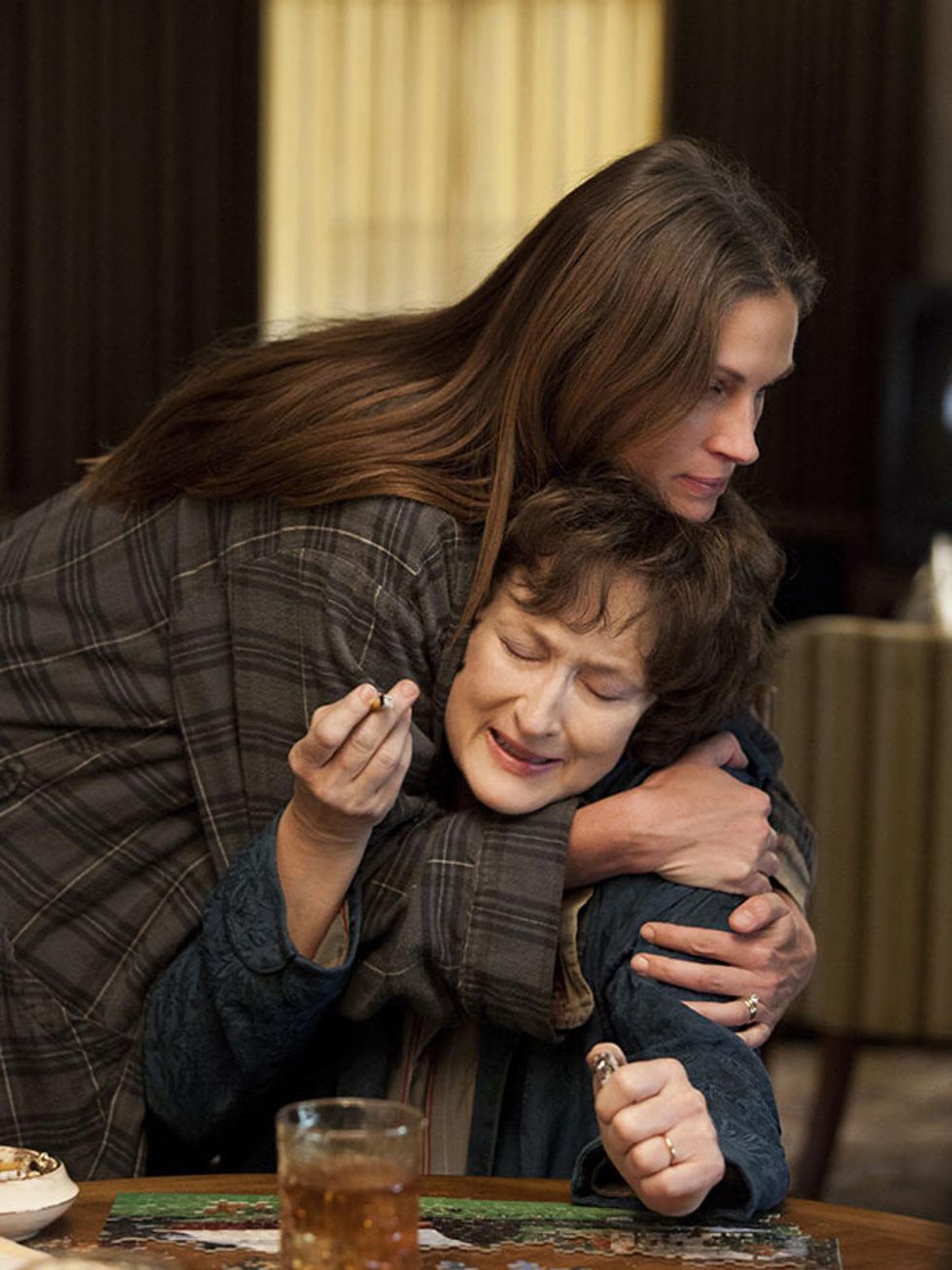Cinema Arts Fest Insider
The mind behind the early Oscar favorite: If Julia Roberts wins big, you can thank Tracy Letts
Tracy Letts was in a great mood, for good reason, as he settled into the plush couch of the posh hotel suite that The Weinstein Company had procured for his meetings with the press.
It was the morning after August: Osage County — the star-studded film version of his Pulitzer Prize-winning play — had been greeted with a 10-minute standing ovation following its world premiere screening at the 2013 Toronto Film Festival. Little wonder, then, that he looked and sounded more than a little like a man enjoying his close proximity to Cloud Nine.
But wait, it gets better: Thunderous applause wasn’t the only thing ringing in Letts’ ears on this pleasant September morning. The distinct sound of early Oscar buzz was in the air, thanks in no small measure to those prognosticators who had started Tweeting their predictions before the Toronto festival audience had finished clapping.
There was little or no debate among the oddsmakers that the movie — a spirited dramedy about family life and strife in a colorful corner of Letts’ native Oklahoma — was a Best Picture contender.
Some handicappers questioned whether Meryl Streep (cast as a cancer-afflicted but indefatigably overbearing matriarch) or Julia Roberts (playing her eldest and feistiest daughter) would be the one most likely to wind up with a Best Actress nomination. (Both, maybe?) But there was little or no debate among the oddsmakers that the movie itself — a spirited dramedy about family life and strife in a colorful corner of Letts’ native Oklahoma — was a Best Picture contender. And Letts already appeared to be among the frontrunners in the race for Best Adapted Screenplay.
Letts will be on hand to introduce August: Osage County, and to answer questions during a post-screening discussion with Alley Theatre artistic director Gregory Boyd, when the movie is presented at 6 p.m. Thursday at the Sundance Cinemas by the Houston Cinema Arts Festival. (There will be a repeat screening, minus Letts, at 6:15 p.m. Friday.)
Letts and I had a one-on-one conversation a few weeks ago in Toronto. Here are the highlights:
CultureMap: It’s often said that whether you’re a writer slaving over your second draft or a film director working in the editing room, the first thing you have to do is kill all your darlings. What did you find hardest to discard while you were translating your script from stage to screen?
Tracy Letts: I think, coming from the theater as I do, that our stock in trade as playwrights is dialogue, what people say. People illustrate what they are by how they act, and what they say. And film is a visual medium, of course, so you have to lose a lot of dialogue.
That’s hard for me. Because dialogue — well, they are darlings, and I hate to lose them, because I’ve taken a long time crafting dialogue that I hope illuminates the characters. So to lose that, and to kind of give over in faith to the film actor an ability to communicate so much without dialogue, is counter intuitive.
CM: It’s likely that many actors — no, make that most actors — would have jumped through fiery hoops to be part of a project as prestigious as this one. Even so, was August: Osage County a difficult film to cast?
TL: [Director] John Wells said it was the easiest thing he’s ever had to cast in terms of actor availability. He says the actors were lining up and calling, because they wanted to be part of this. That’s a very gratifying thing for me as a writer. And it certainly made the process a lot easier.
CM: But . . .?
TL: Well, casting any film is difficult. Casting any play is difficult. But when you’re casting a film based on this play, for which there are a lot of expectations, it’s even more difficult. And then, on top of all that, you’re casting a family. So you have to take into consideration things like ages and looks that you might not otherwise have to worry about so much.
And, of course, when you’re making a big commercial movie, there’s also going to be some attention paid to the marketplace. You’re not going to cast a cast of unknowns to do August: Osage County. So I can’t say there was anything too surprising about the casting. But I am delighted that we avoided a lot of pitfalls. I know that there were moments when people were being discussed that I thought were inappropriate for the piece — and I started to pull my hair out.
But I decided to just let the process play out. And the waters found their own levels. And some good decisions were made at the 11th hour 11th hour about casting.
CM: What input did you have during the process?
TL: I did actually make an impassioned plea at the beginning of the process to cast American actors. I said, “This is a quintessential American piece. And it would be a mistake it you had people going to see, say, Dame Judy Dench’s Violet. Or have people from England, Ireland and Australia playing all of the characters.”
CM: So you don’t think Michael Caine could have played the Sam Shepard role?
TL: I think all those actors could have done those roles. But I didn’t want American actors to lose the opportunity to do them. Now, having said that — and I don’t want to sound too provincial about it — I lost that fight in the case of Ewan McGregor, and in the case of Benedict Cumberbatch. But I lost it quite happily, because those guys are great in the film.
CM: Speaking of great actors: Matthew McConaughey kinda-sorta kicked off his rebranding as an edgy indie-movie actor in William Friedkin’s Killer Joe, another film you adapted from one of your plays. Do you feel proud of your part in his career renaissance?
TL: [Laughs] I sure do. I think Mathew is a really terrific actor, and I think he . . . well, I don’t want to say he made bad movies, because I didn’t see them. But he wasn’t making movies that I would watch. He wasn’t making movies for me. I wasn’t part of the target audience for those films.
But I always thought he was a good actor in Lone Star — that’s where I first remember seeing him — and the Austin films [Dazed and Confused, The Newton Boys] with Richard Linklater. It was clear he had a great subversive sense of humor. And he has the really great masculine, Western presence that he was able to bring to bear in Killer Joe.
So I was delighted that he agreed to do that piece. It’s a great performance.
Will Meryl Streep (cast as a cancer-afflicted but indefatigably overbearing matriarch) or Julia Roberts (playing her eldest and feistiest daughter) wind up with a Best Actress nomination for August: Osage County?




